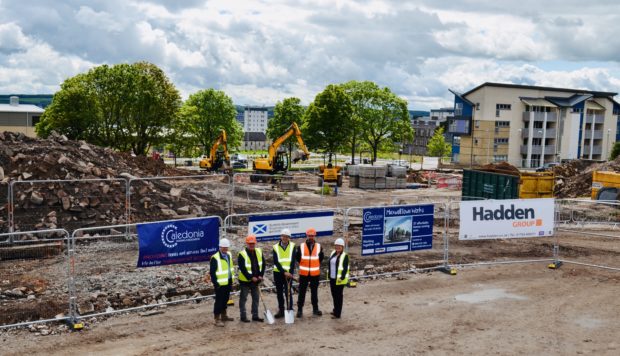Delays in the planning system and changes to tendering processes have been blamed as turnover tumbles at a major Perthshire construction firm.
Bosses at Hadden Construction say the fall, from £29.2 million in 2018, to £21.8m for the year ending March 31 2019 is a result of a number of unsuccessful planning applications, planning delays and a move into framework tendering systems.
However, managing director, Steven Brady, pointed to a strong order book and said the firm was already looking to return to 2018 financial levels in this financial year, with plans to expand the company’s base of operations.
He said: “We had three developments that did not get through planning and there have also been a number of planning delays on other projects, mostly due to third parties rather than the planning system itself.
“Although we might previously seen a gestation period of 10 months for a project, from proposal to putting a shovel in the ground, this has now become up 24 months.
“Essentially, these are issues that are outwith our control.”
Mr Brady said that changes in the market had seen a move towards more affordable housing that involved a move from a traditional tendering process taking around ten weeks to a framework system that take up to 12 months.
He added: “I’m very positive about frameworks – they give the opportunity to de-risk and we have been positioned into 16 local and national frameworks and we have been successful in securing a significant number of contracts, although planning delays have deferred commencement these projects, bringing a consequential reduction in anticipated turnover.”
The firm has boosted the number of apprentices, with eight currently going through its Skills Academy across various departments in the organisation.
Pre-tax profit fell from £917,644 in 208, to £125, 655 last year.
Mr Brady said: “I am very positive about our outlook.
“We are expanding the size of our premises by around 4,000 sq ft and have an order book with a value of £45m.
“We have seen organic growth over the past 18 months and expect to our financial position return to 2018 levels.”
The average monthly number of employees at the firm rose from 77 to 83 over the period, with 39 site workers and 44 employed in office and management roles.
Wages and associated costs over the period rose from £3.5m, to £3.9m – an increase of almost 13%.
Core business for the firm remains the construction and refurbishment of major public sector and commercial buildings, along with the construction of speculative housing for sale, as well as building affordable housing for the public sector.
jimillar@thecourier.co.uk
